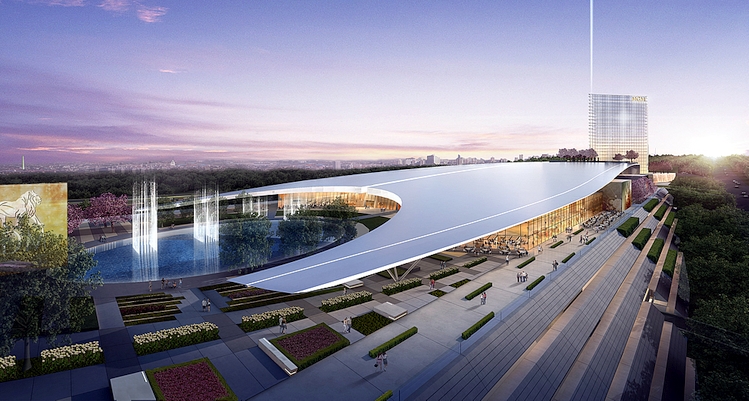While MGM China Holdings Ltd profits showed a more than 30% decline over the same quarter a year ago, MGM Resorts International (MGM) did better overall with US operations compensating for the losses overseas. The occasion of announcing a net increase of $66.4 million compared to a $20.3 million loss for the same three months last year gave MGM an opportunity to reveal its plans for MGM Growth Properties (MGP) a real estate investment trust (REIT) spin-off.
MGM is not as vulnerable to a decline in the Macau market as are its American competitors there (Sands and Wynn) so a $1.6 billion rise in domestic revenues was able to offset the 33% decline (to $529 million) in their China subsidiary’s profit. Slot handle was up with table drop falling, domestic room occupancy was also up in spite of an average $10 per room rate increase.
The headlines are sure to be full of REIT news for much longer than current revenue reports, and the plan to spin off their physical properties to MGP (effectively allowing MGM to rent to itself while avoiding certain taxes) will help boost the overall bottom line.
Ten of MGM’s prime properties are expected to be acquired by MGP, unsaddling the parent company of about a third of its long-term debt load. MGP will take on about $4 billion of the company’s roughly $12.8 billion debt.
MGM will need to pay down some debt for the plan to de-leverage the company’s debt load by any significant measure. MGM will hold onto about 70% of MGP and sell the balance of shares in the REIT on the open market in an attempt to pull in about $1 billion. The company has filed an S-11 with the SEC in relation to the public offering. Pending favorable market conditions and regulatory approvals the spin-off could be completed in the first quarter of 2016.
Under the current plan, MGM would sign a 10 year lease with four 5 year extension options on ten existing properties with an additional first right of refusal on MGM Springfield (MD) and MGM National Harbor, near Washington D.C.
The ten properties include MGM Grand Detroit, Beau Rivage and Gold Strike Tunica in Mississippi, the MGM Park entertainment district in Las Vegas, along with six Las Vegas Strip properties that produce over 40% of domestic revenue. Those properties are Excalibur, Luxor, Mandalay Bay, Mirage, Monte Carlo, and New York-New York.
Penn National Gaming spun off a REIT vehicle which has since reached agreement with Pinnacle Entertainment to acquire and lease back their properties, giving it a total of 35 locations under ownership. Caesars Entertainment is attempting to create a similar trust company as part of its bankruptcy restructuring plans. Hedge fund investor Johnathan Litt’s Land and Buildings Investment Management started the pressure on MGM to create the REIT vehicle earlier this year, an issue that dominated shareholder awareness previous to the last board election.



